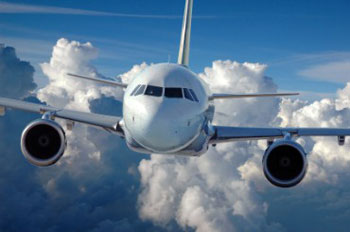 Federal regulators cannot solve every problem of modern life, but that does not mean that well-targeted rules cannot solve any problems. Case in point: airline passengers who become airline hostages during extended ground delays.
Federal regulators cannot solve every problem of modern life, but that does not mean that well-targeted rules cannot solve any problems. Case in point: airline passengers who become airline hostages during extended ground delays.
Last June, passengers on 268 commercial flights in the United States were stranded on the tarmac for more than three hours. This June, only three flights were similarly delayed. In May, there were only five flights delayed more than three hours. What changed to cause this miraculous improvement? The rules.
Airlines had long argued that there was nothing they could do to safely reduce the number of ground-held flights without increasing cancellations or otherwise inconveniencing passengers. But after a new Department of Transportation rule took effect at the end of April, imposing heavy fines on airlines that trap customers in planes, suddenly the impossible became possible. The rate of flight cancellations held steady at about 1.5 percent, and I, for one, do not feel inconvenienced in the slightest by knowing there is now a somewhat lower chance I will be imprisoned for hours in a metal tube that is going nowhere.
Chaos did not ensue. Large numbers of passengers did not find themselves stranded for days waiting to be rebooked on crowded flights. Airlines just did a better job of returning passengers to airports to wait out long delays. The airlines’ overall on-time rate actually went up slightly, from 76.1 percent last June to 76.4 percent this June.
The new rules, which have been referred to as a passenger bill of rights, were announced by Transportation Secretary Ray LaHood last December, after years of congressional inaction on the issue. Under the new rules, airlines can face fines of up to $27,500 for each customer who spends more than three hours waiting inside a plane on the ground. The rules also mandate that passengers held on the tarmac for two hours or more receive food and water.
When Continental Airlines (CAL) and its regional partner, ExpressJet Airlines (XJT), kept 47 customers captive overnight on a plane in Rochester, Minn. last year, the airlines were fined only $175,000. If that incident occurred today, the fine could be as much as $1.29 million. Apparently that’s enough to get airlines to adjust their cost-benefit calculations.
The June drop may have just been a fluke, suggested Victoria Day, a spokeswoman for the Air Transport Association, which represents carriers including Delta Air Lines (DAL), Inc., and United Air Lines (UAUA) “Flight delays and cancellations vary significantly from month to month as a result of variables, including weather and airspace congestion,” Day wrote in an e-mailed statement to Bloomberg.
It is true that this summer has been relatively free of big thunderstorm outbreaks at key air hubs, including New York, Chicago, Atlanta and Dallas. However, the ATA’s statement seems to be little more than an attempt to deflect the criticism that the airlines could have been doing a better job all along, if only they had cared enough to make the effort.
Still, we ought to wait for more data before pronouncing the new rules a complete and unqualified success. As always, I think it’s a good idea to use secondary airports, like Chicago-Midway, White Plains, N.Y., and Fort Lauderdale, Fla., rather than more congested metropolitan terminals. The smaller airports are less prone to massive delays, which can still be annoying and inconvenient even if you get to wait them out inside an airport instead of in a plane.
If the effect of the new rules proves permanent, the Department of Transportation may want to build on that success to force airlines to even greater civility. At the time that the new rules were announced, I wrote about some of the ways in which the regulations could go even further to provide a true bill of rights for passengers. While the new regime of fines may deter airlines from mistreating their passengers, it does not offer any recompense to those passengers who do still find themselves stranded. The European Union, on the other hand, already requires that air and rail passengers be compensated for lengthy delays, and recently also introduced similar protections for passengers traveling by boat.
For now, though, I’ll take food and water and the chance to sit inside a climate-controlled terminal.


Leave a Reply